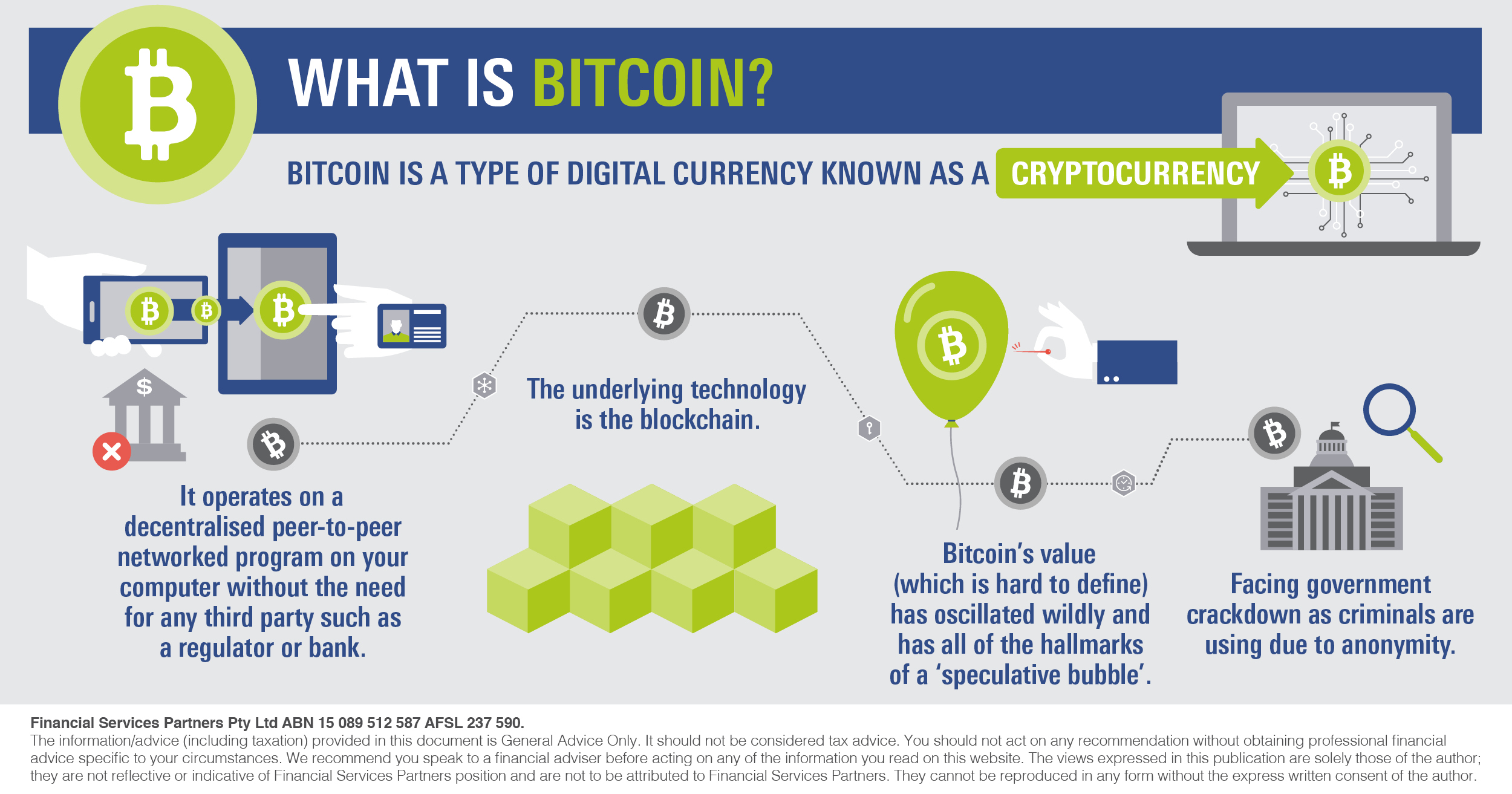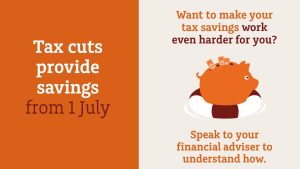What is bitcoin?
Bitcoin is a type of digital currency known as a cryptocurrency. It operates on a decentralised peer-to-peer networked program on your computer, meaning that transactions can be conducted between a buyer and seller without the need for any third party oversight such as a regulator or bank. The underlying technology that makes all cryptocurrencies possible is the blockchain.Bitcoin’s ‘wild run’
Bitcoin’s value has oscillated wildly. It peaked at US$20,000 in mid-December 2017, lost 40 per cent of its value within a week, then bounced back and hasn’t stopped bouncing since.What are the risks?
Bitcoin certainly has all of the hallmarks of a ‘speculative bubble’ and history is littered with plenty of examples of speculative fevers that ultimately collapsed. Another risk is regulation. Some cryptocurrencies are becoming the preferred medium of exchange for criminals due to anonymity, if governments can find a way to crack down they surely will.Want to know more?
Have a chat to your financial adviser who can help you work out if Bitcoin, or cryptocurrency, merits further investigation.DISCLAIMER
Financial Services Partners Pty Ltd
www.financialservicespartners.com.au
ABN 15 089 512 587 AFSL 237 590. The information/advice (including taxation) on this website is General Advice Only. It has been prepared without taking into account any of your individual objectives, financial situation or needs. Before acting on this advice you should consider the appropriateness of the advice, having regard to your own objectives, financial situation and needs. You should obtain a Product Disclosure Statement relating to the products mentioned, and consider the statements before making any decision about whether to acquire products or services.
We take your privacy seriously and as such we, or any of the Financial Services Partners financial advisers, will never ask you to transfer money via email request unless we have spoken to you in person or the transfer is part of an existing arrangement between you and your financial adviser. If you receive any such requests that are outside the agreed arrangements you have with your financial adviser, please contact our office immediately to confirm the validity the request before you take any action – .







